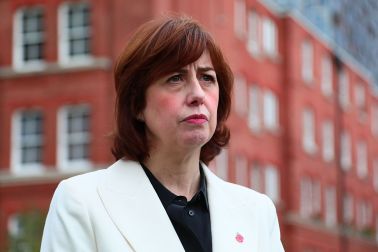The coalition has worked very hard, taken tough decisions, worked in the long-term interest of the country for short-term political gain. That, if you can’t summon the energy to read all 46 pages of the Mid-Term Review, is its surprising verdict on the Coalition so far. But the document also sets out plans for the rest of this Parliament, although many have already been announced in previous speeches and launches. Here’s the bluffer’s guide to what the Government has got in store up to 2015:
Deficit
– The Government will stick to its deficit reduction plan ‘while protecting vulnerable groups and key long-term investments’.
Business, enterprise and growth
– Sector-specific industrial strategies, including plans to boost high-tech industry.
– Plans for railways include an ‘electric spine’ from Southampton to Yorkshire, increased capacity for 140,000 extra daily commutes at peak times by the end of 2019, and legislation for the first phase of the high-speed rail network.
– An acceleration to the road-building programme and upgrades to London transport.
– Boost housebuilding through a debt guarantee scheme, an extension of the FirstBuy scheme, continued promotion of the NewBuy scheme, removal of section 106 obligations on developers if sites are unviable, bringing empty homes back into use, supporting the release of public sector land and reducing planning delays.
– More growth-related spending will be devolved to local areas, pursue a second wave of City Deals, and make further investments through the Regional Growth Fund.
– Support for businesses including cuts in corporation tax and the small companies tax rate, increases in business rate and investment allowances, the creation of a Business Bank, and an ‘aggressive’ pursuit of the deregulation agenda.
– Doubling UK exports to £1 trillion per year by 2020 through expanding UK Trade & Investment and establishing a UK Export Finance £1.5 billion direct lending facility for loans for overseas buyers of British goods and services.
Banking
– Legislating to implement the main Vickers recommendations, and amending it as appropriate according to the recommendations of the Parliamentary Commission on Banking Standards.
– Making it easier for people to switch banks.
Tax
– The Government will continue to move towards a personal tax allowance of £10,000.
– There will be continued work on tax avoidance, with legislation for a General Anti-Abuse Rule in the 2013 Finance Bill, and an aim to raise an extra £2 billion a year through further investment in anti-avoidance, with £9 billion more a year by the end of the Parliament.
Cost of living
– On energy and transport, legislation to ‘ensure customers get the lowest energy tariff to suit their circumstances’ and the possibility of extending rural fuel discounts for remote mainland communities.
– A Consumer Bill of rights will ensure customer rights keep peace with technology. Customers will also be given access to data collected and held by businesses and will receive greater protection from rogue bailiffs.
– Regulated rail fares and TfL fares will not rise on average by more than 1 per cent above the Retail Prices Index in 2013 and 2014.
Welfare
– The document covers the Coalition’s main reforms to welfare, including the introduction of Universal Credit, greater conditionality in the benefits system, the personal independence payment and the Youth Contract.
– Continued support for the minimum wage.
– There will be no U-turn on pensioner benefits in this Parliament.
Higher and further education
– Reforms to make universities more competitive and raise the standards of further education, including the implementation of the Wolf reforms for the latter.
Energy
– A trebling in support for low carbon energy up to 2020, a gas strategy, a regime for shale gas exploitation, and plans for the first nuclear power stations in the world without public subsidy.
– A continuing commitment to green projects, including a launch of the Green Deal, the Green investment Bank, and a roll-out of smart meters from 2014.
Europe
– A commitment to a ‘tough, fiscally responsible outcome’ on the EU budget, reform of the Common Agricultural Policy, and the protection of British interests in negotiations on banking union.
– The publication of the balance of competencies review in 2014.
– Changes to the Working Time Directive for the NHS.
Public services
– On education, continued support for parents wishing to set up new schools and for schools converting to academies, and the implementation of performance-related pay for teachers.
NHS
– A summary of the Government’s reforms to the NHS, including commitments to increase the health budget in real terms, the Friends and Family Test for the quality of care in hospitals, and improving mental health services.
– Reform to social care, including a scheme to protect people from having to sell their home to pay for their residential care.
Police
– Modernising the police force, particularly pay, conditions and workforce flexibility.
– Using the Leveson report as a springboard, ensure high ethical standards in the police force.
– A new offence of drug driving.
Justice
– A continued commitment to rehabilitation to reduce reoffending.
– Pilots of weekend and night court hearings, and broadcasting from court.
– Exploring the potential for new rape support centres.
Transparency
– Greater transparency on Government contacts with the media.
Families and children
– Reforms to childcare, adoption, parental leave, child protection and family law.
– A provision for Lib Dems to abstain on votes on tax breaks for married couples, although there is no specific restatement of the commitment to this.
Pensions
– A new mechanism to ensure the state pension age reflects future changes in life expectancy.
The Big Society
– A push for 5,000 community organisers in deprived areas.
– Further provisions for charitable giving through cash points and improved administration of Gift Aid.
– Support for mutuals in the public sector.
Immigration
– A commitment to reducing net migration, but alongside that, a pledge not to limit immigration by entrepreneurs, high net worth individuals or senior executives earning more than £150,000, no cap on the number of genuine students, 1,000 places a year for MBA graduates.
– A new ‘Life in the UK’ handbook and test and a requirement for those applying to settle in the UK to have an intermediate level English language qualification.
Equalities
– A reiteration of the Government’s commitment to same-sex marriage.
– A new system of equal pay audits.
Freedoms
– Commitment to passing the Defamation Bill and to considering the report of the Commission on the Bill of Rights.
– Ensuring the security services are properly scrutinised by Parliament.
Political reform
– A reiteration of commitments to a referendum in Scotland and for a Coalition campaign against independence, responding to the Silk Commission and considering devolving corporation tax to Northern Ireland.
– Reviewing public bodies every three years to ensure they continue to be necessary.
– Commitments to a statutory register of lobbyists, agreement on reforming party funding, legislation for a power of recall and a vote on the Boundary Reforms. Note that the final commitment does not elaborate on the Coalition’s position on this vote.
Environment, food and rural affairs
– Commitments to universal broadband across the UK, a million trees planted by 2015, implementing EU regulations on illegal logging, reducing air pollution and controlling bovine TB (without specific mention of a cull).
– £2.3 billion of investment in flood risk management. The document says ‘we expect to exceed our target to improve protection for 145,000 homes by 2015’.
Culture, Media and Sport
– Maintaining funding for Olympic and Paralympic teams for Rio 2016 and building on the Olympic legacy.
– Continuing to ‘work on a cross-party basis towards the implementation of the Leveson report on press regulation’.
National Security
– Strengthening counter-terrorism and borders, and £650 million of investment in cyber security.
– A new draft of the Communications Data Bill.
Foreign Affairs and Defence
– Continued commitment to the Afghan government taking over security responsibility by the end of 2014, with a reduction in force levels to 5,200 by the end of 2013.
– Continued work on preventing Iran from acquiring nuclear weapons, and for a resolution to the violence in Syria.
– A focus on the ‘development of open economies, open governments and open societies’ for the UK’s presidency of the G8.
– A continued insistence on the right to self-determination for the people of Gibraltar and the Falkland Islands.
– A 10-year equipment plan for the Armed forces, £1.8 billion investment over 10 years to increase the capacity of the Reserves, £100 million in 2013/14 to improve service accommodation, 7,000 fewer civilian MOD staff by 2014.
– Publication of a review into the alternatives to Trident.
Aid
– Enshrining in law the commitment to increase aid to 0.7 per cent of gross national income from 2013.







Comments